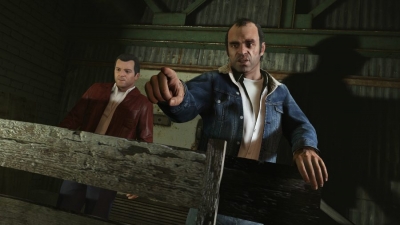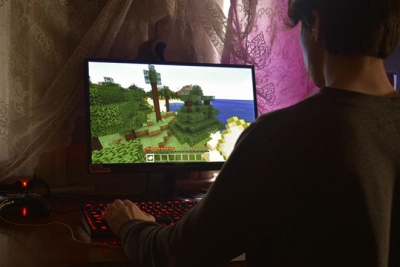There are dozens of aspects of a game that make it great. The time has long since past when games simply had to play well or have a cool story to keep players coming back time after time.
Nowadays, there are many factors that will not only determine if a game is any good, but also how many copies it will sell, as well as which games will become potential esports titles, and which will have enough longevity to keep them at the top of gamers’ Favorite All-Time Games charts.
Storyline
The first major aspect of any game is the storyline. Players want a story that is not only engaging but also something that they can care about. The story is also the go-to reason for many when talking about how good a game is, for example The Last of Us 1 and 2, or the Uncharted or Resident Evil series of games.
A good story also creates stakes, and stakes are what keep people playing. They want to rescue the character that is missing, beat the villain, or save the city or village. A great game’s storyline will immerse you in all its dramatic twists and turns, making you want to keep playing until you find out what happens at the end.
Graphics and Sound
Nobody wants to play a game that doesn’t look or sound great; this is a simple truth of gaming. If your game is set in the real world, it must look and sound like the real world, or you’ll break the player’s immersive experience.
For example, a game like Grand Theft Auto doesn’t look “real,” but the graphics are so stunning that you still feel part of the in-game world.
Long-Term Goals
The best games have goals that the player needs to work towards, whether it’s a game like Call of Duty, where players aspire to unlock Mastery Camos for their weapons, or a game like Cities: Skylines, where players aim to create sprawling cities.
It doesn’t necessarily matter what the long-term goal is, but players never want to feel like they are “done” with a game. There should always be a reason for them to come back the next day and start working towards the next goal.
Balance
The mistake many games make is misjudging the balance between fun and realism. While realism is the point in some games, such as Escape From Tarkov, there always needs to be a balance.
Players don’t want to feel like their character can do absolutely anything, because this would make the game far too easy. The best games ensure that no matter what abilities or weapons your character has, they still need to work to solve challenges and/or defeat enemies.
Difficulty
Speaking of balance and games being too easy, the difficulty level is another factor that can make or break a game. While this can come down to an individual player not having enough experience or skill (“Get good,” as some gamers might say), there still needs to be a difficulty curve that leads new players gently into the action at first, but also challenges experienced players who otherwise might get bored if the difficulty curve is too relaxed.
Game developers can achieve this in various ways, including something as simple as an actual difficulty setting, or by developing areas in the game in such a way that the player knows that the area they are entering, or the enemy they’re about to face, is too challenging for their current ability or equipment level. In the best games, this intricate process is effortless. For example, Assassin’s Creed Valhalla does this well by having symbols above enemies' heads that are either green, yellow, or red, indicating if your character is strong enough to fight them yet. If you see red, stay away, for now!
Characters
While a game’s world and storyline are vital, the characters that inhabit that world are just as important. Whether it be the main character or the supporting cast, players want to feel something towards them.
You want them to like the main character and their allies, and dislike the enemies or villains. A great script is needed for this, and smart choices regarding how the villain acts and goes about their business. Some of the best fiction writers in the world write the scripts of your favorite video games.
For example, while Pokémon’s Pikachu may be a simple character, people love him because he’s cute, loyal, and always defends the player in battle; therefore, players develop a real affinity for him.
Replayability
Story choice, multiple storylines, and frequent updates all combine to make a game replayable. Considering AAA titles are more expensive than ever, playing through a game and finishing it in a week or two just doesn’t cut it.
Players want games they can always come back to, and where they will always face new challenges, or even get to start the game all over again and take a different route. Pokemon is one of the best examples of this, as players can play any Pokémon game dozens of times and never get bored, thanks to the replayability factor. Each time you play you can choose a different tactic. For example, you can choose to only use Flying Pokémon, or only Pokémon under Level 30, or you can only use each Pokémon once in battle; the list goes on. There is no one way to beat a Pokémon game, which is why the games are over 20 years old and still played regularly today.






